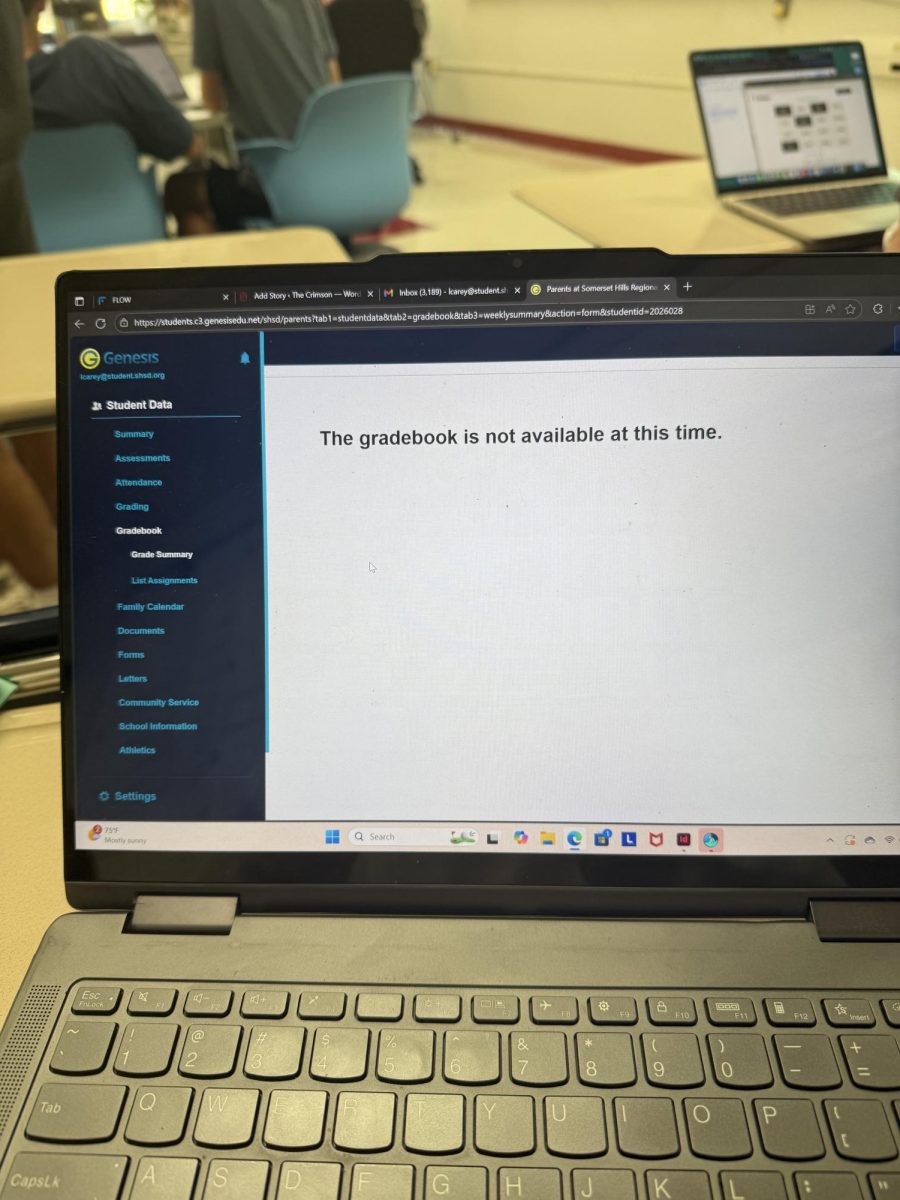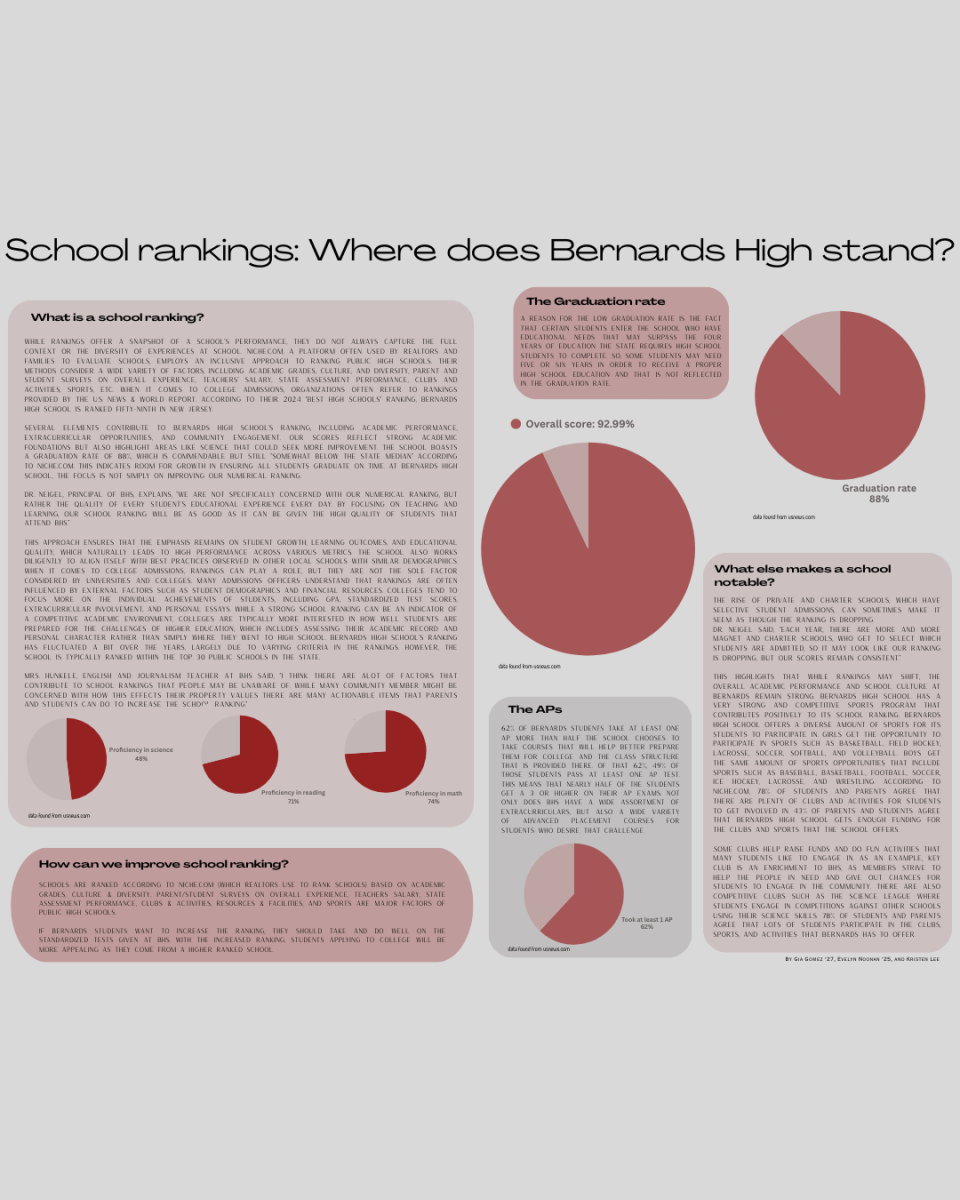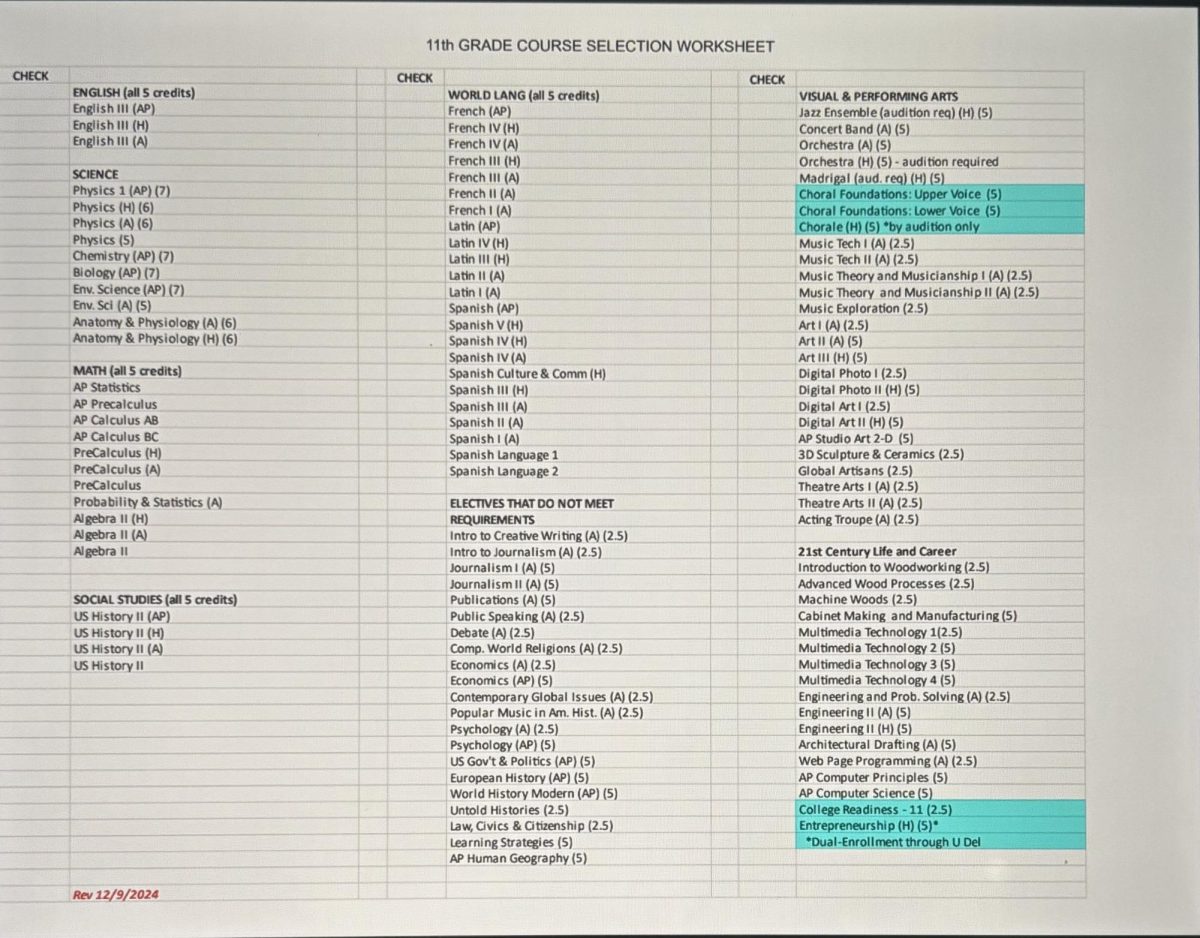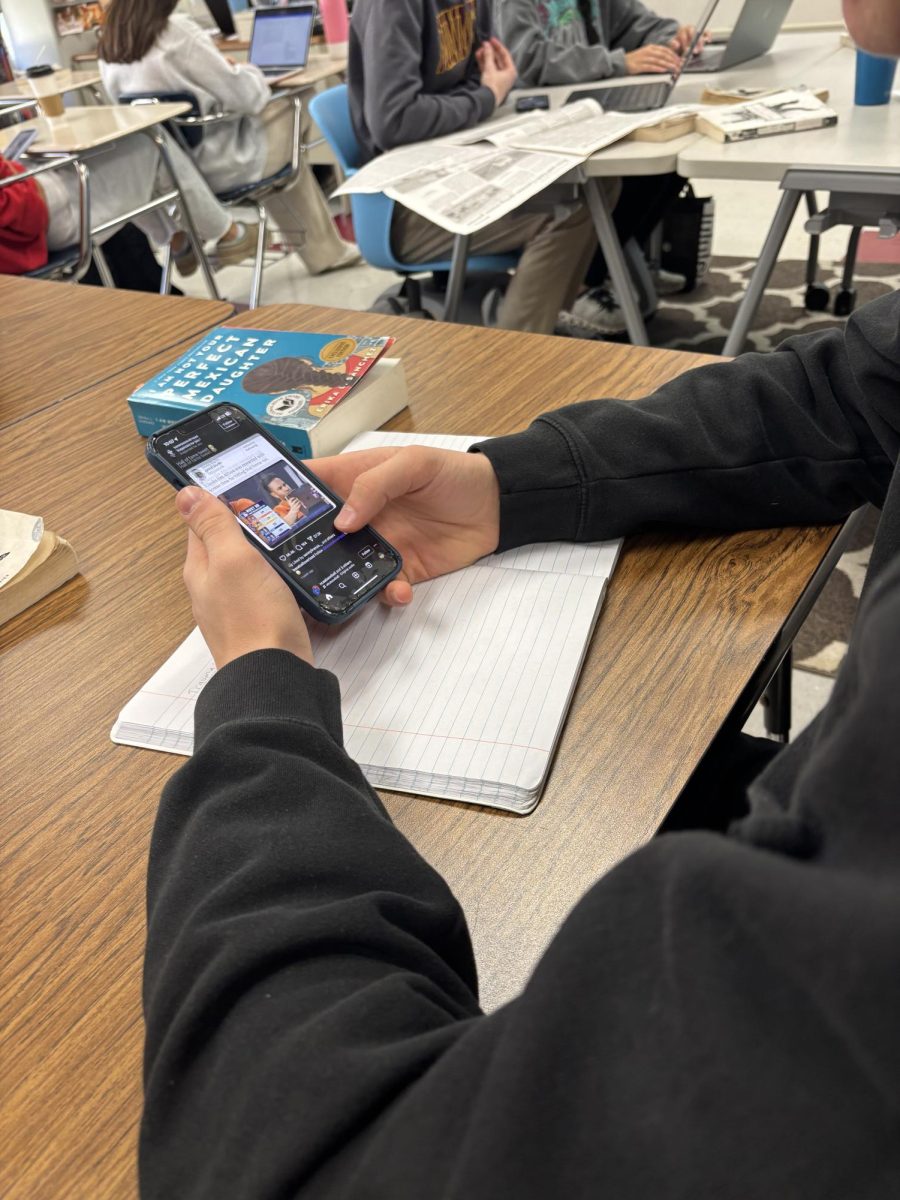In the first few weeks of school, many students at Bernards High School were surprised to discover they could not access the gradebook during the day upon logging into Genesis. This is not a technical glitch, but the result of a new school policy that keeps the gradebook closed to students and parents during school hours.
This new policy first came into conversation in light of research on students’ phone usage. Before Bernards finalized its current limitations on the phones, the District had gathered research and data regarding cell phones in school, surveying parents, students, and staff to collect information. One of the findings of this research was that cell phone usage during school hours was closely related to having access to the gradebook, as checking grades often prompted communication through text messages between parents and students during instructional time. To minimize distractions that occur as a result of this student-parent communication, the District concluded that closing the gradebook during school would be a beneficial solution.
To some students, this change may not make a big difference. Still, to others, the new policy has already caused a sense of irritation and concern as their grades, which had always been available to them previously, are now being restricted at school.
Julia Schmidt ‘26 voices her concern about the change, “I find it really frustrating because I often need to consult grades with my teachers outside of instructional time,” adding, “without it [the gradebook], I can’t fix issues or mistakes that may have happened with my grades till the next day or in most cases even longer.”
While students are justified in their feelings about this change, their frustration also demonstrates why this change was so essential.
Whether waiting for a grade, needing to discuss a grade, or receiving a poor grade, grades consume students’ focus and stress during the school day, and having the gradebook accessible during school only further enforces this stress. The gradebook reinforces students’ overprioritization of their grades over knowledge, pushing them to overly focus on the grades they need to receive rather than the learning they need to get there.
Bernards principal Dr. Neigel sheds light on the district’s decision, sharing, “It [the gradebook] puts, I think, an unhealthy focus on the grade rather than the learning. I think if we look at every single grade and we mince it down to the tenth of the decimal point, we’re getting lost in the process.”
Closing the grade book might not be a perfect solution, as this stress that students experience in relation to their grades during the school day may carry into the home. However, allowing this stress to flow out of school, even at the cost of flowing more into students’ lives outside of school, may be more beneficial than students think. By closing the gradebook during school, not only is the distraction of grades and checking them limited during the day, leading students to be more engaged during instructional time, but, additionally, having the grades unavailable during school pushes students to check their grades at home, giving them an incentive to work harder on assignments and studying outside of class.
The high school’s student assistant counselor Ms. Cava, shares her thoughts on the topic, “I feel like it’s better to carry that stress at home more than it is in school, because when you’re in school, you need to be on. Not only have your work done, but you need to be present in class.”
Ultimately, grades will always correlate with stress, and whether students have access to the gradebook during the day or not, this stress will still exist. Closing the gradebook is not about getting rid of stress, but rather redirecting it out of school to improve students’ ability to learn. School should be about what one learns, not what grade they receive. By closing the gradebook, it is hoped that students’ energy and focus will be centered on the learning process, encouraging them to be present in the classroom and trust that their grades will follow.













